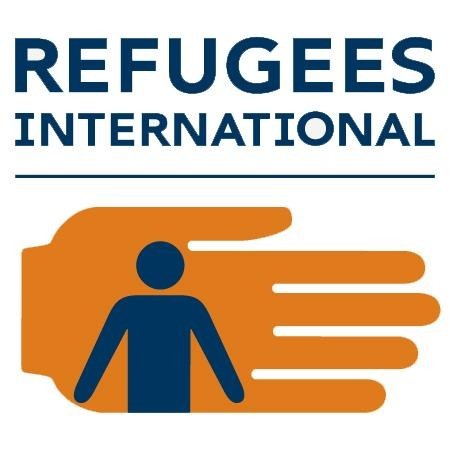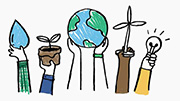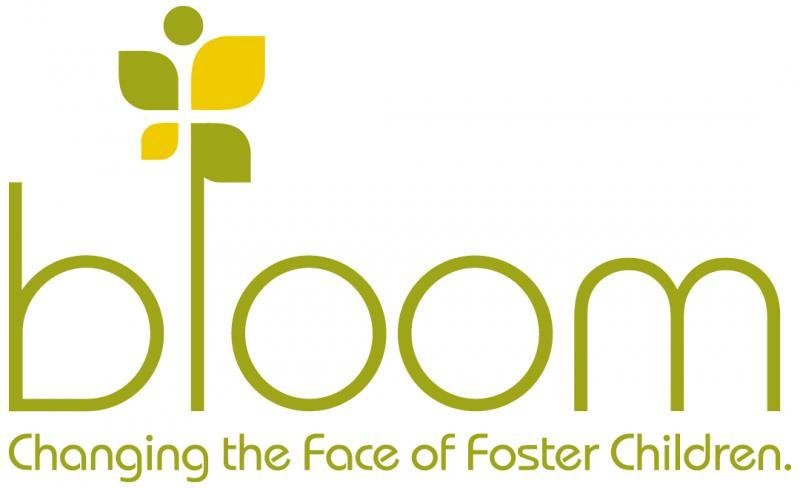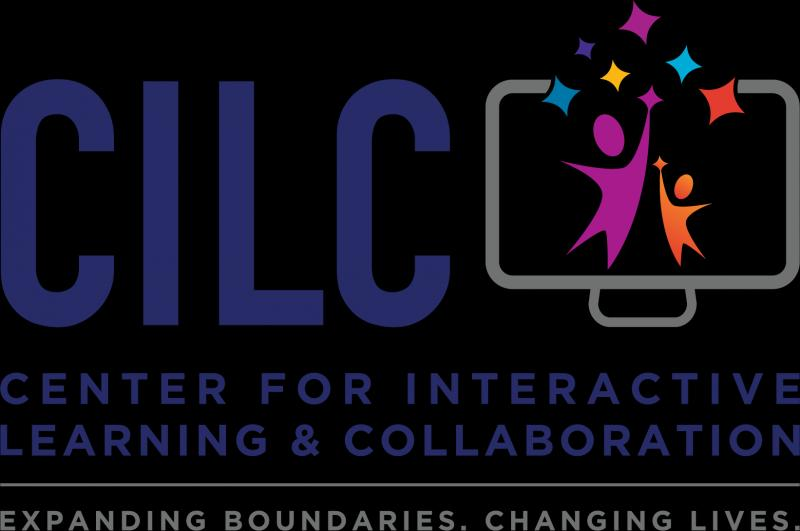Mission: Refugees International advocates for lifesaving assistance and protection for displaced people and promotes solutions to displacement crises.
Programs: Advocacy:in order to maintain its independence, refugees international (r. I. ) does not accept funding from any government or from the united nations. This allows us to advocate for those displaced by conflict and natural disasters without concern of repercussions. In 2016, the world witnessed a global refugee crisis of historic proportions, with the number of refugees and displaced people reaching 65 million world-wide - the largest number since world war ii. Millions fled their homes and their homelands because of wars and armed conflicts, persecution, and gender-based violence in many countries around the world including syria, iraq, somalia, nigeria, myanmar, bangladesh , mexico and central america. R. I. Stayed at the forefront of these crises, advocating for the rights and protections of refugees and displaced people. Whether addressing the needs of those displaced by war, climate change, and ethnic or gender-based violence, r. I. Traveled to asia, africa, europe, the middle east, haiti and northern triangle to bear witness to these crises and give a voice to the world's most vulnerable people. R. I. Identified the gaps in assistance for people who were forced to flee their homes, and then advocated with powerful institutions-including the u. S. Government, the u. S. Congress, and the united nations-to ensure that they fulfill their responsibility to act on behalf of the most vulnerable and neglected people across the globe. We made targeted, actionable recommendations to those policy makers with the power to make a difference. Main outcomes:over the past year, refugees international achieved the following as a result of our missions around the world:impact:syria, iraq, and the middle east:refugees international's advocacy to support syrian refugees paid off when the united states contributed $697 million in humanitarian assistance to countries hosting syrian refugees as well as for syrians still suffering from the war's impact. Moreover, throughout 2017, r. I. Continued its work on the status of syrian and non-syrian refugees and asylum seekers in turkey, advocating in particular for their access to legal employment, safe working conditions, and fair wages. In march, the state department issued a call for ngo funding applications for programs benefiting afghan, iraqi and other non-syrian refugees, making clear it would only fund programs that benefit at least 50% non-syrian refugees. More focus on these groups was a key recommendation in r. I. 's february 2017 report as humanitarian assistance in turkey tends to target syrian refugees, leaving out refugees of other nationalities. In december, following the release of r. I. 's latest report on refugee employment in turkey, the turkish government reduced by more than half the fee employers must pay when hiring refugees, one of the obstacles to legal employment for refugees which r. I. Had identified in its report. As international attention to the syrian conflict flagged, r. I. Continued to highlight the humanitarian needs inside syria and mechanisms for delivering aid as humanitarian access inside the country became increasingly restricted. Following r. I. 's report on the effectiveness of small syrian aid organizations operating inside of syria, the u. S. State department prioritized aid proposals that seek to work in partnership with local syrian aid groups. In addition, the u. S. Government's major funding contributions for syrians in 2017 specifically addressed the need to support the communities hosting syrian refugees, as well as increased attention for livelihoods programs for both groups, recommendations r. I. Has been promoting continually for several years. Throughout 2017, r. I. Continued its advocacy on behalf of the millions of displaced iraqis, successfully pressing the united nations and the u. S. Government to make humanitarian assistance-including demining - a priority as displaced iraqis began to return to their once besieged cities and towns. Working in partnership with other groups, r. I. Also helped secure high-level u. S. Government representation at the international iraq reconstruction conference in kuwait. R. I. Also regularly engaged with national security council, a lead decision maker on u. S policy toward iraq to emphasize the importance of continuing humanitarian assistance in iraq as an element of stabilization and security efforts. Refugees international was a primary planner and participant in interaction's iraq task team, which focused one of its 2017 advocacy strategies on the protection of civilians during the mosul offensive. Africa:following its mission to somalia, r. I. Issued a field report that urged the united nations to better address the serious risk of gender-based violence that displaced women and girls faced in over-crowded camps and to ensure that humanitarian aid was prioritized for less powerful clans that had died in greater numbers during the 2011 drought and famine. In addition, based on evidence that resilience programs had prevented some agro-pastoral communities from becoming displaced during the drought, we recommended that funding for those programs be increased. In march 2018, r. I. Staff testified before congress regarding the persistent risk of famine due to continuing drought conditions, urging congress members to continue humanitarian support and robust funding for programs to support somalis to build resilience to more recurrent drought in somalia. R. I. 's long-term efforts on somalia have been effective. Last year, our reporting was part of an advocacy effort that resulted in $990 million in emergency u. S. Government funding, which targeted the famine response in yemen, somalia, nigeria, and south sudan; and this year, r. I. Congressional testimony was part of a successful overall effort to sustain and even increase levels of u. S. Humanitarian assistance. Following sustained advocacy by refugees international, along with other humanitarian organizations, the government of kenya withdrew its threat to close the dadaab refugee camp in northeast kenya, which houses more than 200,000 somali refugees. Moreover, in line with r. I. 's calls for a strong humanitarian response to the ongoing crisis in somalia, the u. S. Government provided more than $1 billion in humanitarian funding for the horn of africa. Women and girls:one week after the release of the r. I. Report on the abuse of women in iraq's detention camps, humanitarian coordinator in iraq lise grande issued a statement saying, nothing is more important than protecting the civilians who have been impacted by the conflict. International humanitarian law is clear. Everything must be done to ensure people are safe and have access to the assistance they need. . . Protection remains our over-riding concern. Humanitarians are deeply worried about incidents of collective punishment, restrictions on free movement, evictions, forced returns, and sexual exploitation and violence, including in emergency sites and camps. " in october 2017, r. I. Joined with other organizations to advocate that the proposed global compact on refugees include language supporting and protecting women and girls. The global compact is intended to offer guidelines for "best practices" in ensuring the protection and well-being of refugees. Continuing in 2018 - and beyond - r. I. Will work to ensure that issues relating to refugee women and girls are given prominent attention in international protocols and practices. Central america:in early 2017, three months after the publication of the r. I. Report, "a battle not yet over: displacement and women's needs in post-peace colombia, " the u. S. State department announced it would provide funding to address one of the most significant gaps reported by r. I. In efforts to implement colombia's victims and land restitution law. In particular, new funding was directed toward the "immediate phase" of assistance for beneficiaries who had not yet been formally included in a government victims' registry. This was to provide the displaced and/or others affected by the conflict with humanitarian aid they could not otherwise access since the colombian government had not yet registered them. R. I. Continued its colombia-related advocacy throughout 2017, including advocacy for the united nations to renew the mandate of the humanitarian coordinator in colombia.
public education:r. I. Engaged in a wide range of public education activities and initiatives throughout 2017.The organization issued 18 research reports based on field missions to iraq, south sudan, somalia, puerto rico, haiti, greece, italy, bangladesh, myanmar, and turkey, to name a few. In addition, ri's experts authored 57 public statements and more than 60 blog posts and op-eds on issues concerning refugees and displaced people globally. In addition, refugees international also earned considerable media coverage in 2017, with more than 2,000 media citations and interviews across the year. R. I. Appeared in news stories carried by the new york times, washington post, wall street journal, financial times, guardian, usa today, time, newsweek, u. S. News & world report, national interest, un dispatch, relief web, npr, reuters, associated press, bbc, cnn, msnbc, nbc, pbs newshour, and numerous other print, online, and broadcast news outlets. The reach of one media outlet alone can be extensive. For example, an opinion piece on the huffington post website by eric schwartz and alexandra lamarche, which focused on u. S. Ambassador to the united nations nikki haley's trip to africa, had a potential reach of more than 38 million readers. Another cbsnews. Com piece about r. I. 's mission to bangladesh during the height of the rohingya crisis reached a potential audience of 14 million readers. Wire service news stories that included comments by r. I. Staff provided even greater reach, since other news outlets picked up and further disseminated those stories to even wider audiences. In 2017, r. I. Also achieved considerably greater reach on social media platforms such as twitter and facebook. The organization's twitter following doubled over the course of 2017, climbing to more than 300,000 followers by the year's end. Many of r. I. 's twitter followers have sizable audiences of their own - some with more than a million followers - further amplifying r. I. 's messaging through retweeting of our content. In addition, videos produced by r. I. In the past year garnered considerable attention. In particular, a video of r. I. President eric schwartz on the bangladesh-myanmar border was viewed almost 100,000 times. Another series of videos focusing on the international day of women earned almost 10,000 views. Refugees international's experts also engaged in public education through speaking engagements and public events, including testifying at congressional hearings. Ri president eric schwartz spoke at a center for global development event focusing on the rohingya crisis. Senior advocates alice thomas and mark yarnell both spoke at un-hosted meetings examining the proposed global compacts on refugees and migration. Senior advocate for human rights daniel sullivan participated in a number of congressional hearings and smaller briefings on the alleged ethnic cleansing taking place in myanmar. R. I. Also partnered with policy research organizations, such as the brookings institution and the u. S. Institute of peace, on large public events and panel discussions. Senior advocate mark yarnell and advocate alexandra lamarche participated in a brookings event looking at the forced returns of displaced people in nigeria with that country's elections approaching. These events afford r. I. With opportunities to further educate the general public and policymakers alike.
Programs: Advocacy:in order to maintain its independence, refugees international (r. I. ) does not accept funding from any government or from the united nations. This allows us to advocate for those displaced by conflict and natural disasters without concern of repercussions. In 2016, the world witnessed a global refugee crisis of historic proportions, with the number of refugees and displaced people reaching 65 million world-wide - the largest number since world war ii. Millions fled their homes and their homelands because of wars and armed conflicts, persecution, and gender-based violence in many countries around the world including syria, iraq, somalia, nigeria, myanmar, bangladesh , mexico and central america. R. I. Stayed at the forefront of these crises, advocating for the rights and protections of refugees and displaced people. Whether addressing the needs of those displaced by war, climate change, and ethnic or gender-based violence, r. I. Traveled to asia, africa, europe, the middle east, haiti and northern triangle to bear witness to these crises and give a voice to the world's most vulnerable people. R. I. Identified the gaps in assistance for people who were forced to flee their homes, and then advocated with powerful institutions-including the u. S. Government, the u. S. Congress, and the united nations-to ensure that they fulfill their responsibility to act on behalf of the most vulnerable and neglected people across the globe. We made targeted, actionable recommendations to those policy makers with the power to make a difference. Main outcomes:over the past year, refugees international achieved the following as a result of our missions around the world:impact:syria, iraq, and the middle east:refugees international's advocacy to support syrian refugees paid off when the united states contributed $697 million in humanitarian assistance to countries hosting syrian refugees as well as for syrians still suffering from the war's impact. Moreover, throughout 2017, r. I. Continued its work on the status of syrian and non-syrian refugees and asylum seekers in turkey, advocating in particular for their access to legal employment, safe working conditions, and fair wages. In march, the state department issued a call for ngo funding applications for programs benefiting afghan, iraqi and other non-syrian refugees, making clear it would only fund programs that benefit at least 50% non-syrian refugees. More focus on these groups was a key recommendation in r. I. 's february 2017 report as humanitarian assistance in turkey tends to target syrian refugees, leaving out refugees of other nationalities. In december, following the release of r. I. 's latest report on refugee employment in turkey, the turkish government reduced by more than half the fee employers must pay when hiring refugees, one of the obstacles to legal employment for refugees which r. I. Had identified in its report. As international attention to the syrian conflict flagged, r. I. Continued to highlight the humanitarian needs inside syria and mechanisms for delivering aid as humanitarian access inside the country became increasingly restricted. Following r. I. 's report on the effectiveness of small syrian aid organizations operating inside of syria, the u. S. State department prioritized aid proposals that seek to work in partnership with local syrian aid groups. In addition, the u. S. Government's major funding contributions for syrians in 2017 specifically addressed the need to support the communities hosting syrian refugees, as well as increased attention for livelihoods programs for both groups, recommendations r. I. Has been promoting continually for several years. Throughout 2017, r. I. Continued its advocacy on behalf of the millions of displaced iraqis, successfully pressing the united nations and the u. S. Government to make humanitarian assistance-including demining - a priority as displaced iraqis began to return to their once besieged cities and towns. Working in partnership with other groups, r. I. Also helped secure high-level u. S. Government representation at the international iraq reconstruction conference in kuwait. R. I. Also regularly engaged with national security council, a lead decision maker on u. S policy toward iraq to emphasize the importance of continuing humanitarian assistance in iraq as an element of stabilization and security efforts. Refugees international was a primary planner and participant in interaction's iraq task team, which focused one of its 2017 advocacy strategies on the protection of civilians during the mosul offensive. Africa:following its mission to somalia, r. I. Issued a field report that urged the united nations to better address the serious risk of gender-based violence that displaced women and girls faced in over-crowded camps and to ensure that humanitarian aid was prioritized for less powerful clans that had died in greater numbers during the 2011 drought and famine. In addition, based on evidence that resilience programs had prevented some agro-pastoral communities from becoming displaced during the drought, we recommended that funding for those programs be increased. In march 2018, r. I. Staff testified before congress regarding the persistent risk of famine due to continuing drought conditions, urging congress members to continue humanitarian support and robust funding for programs to support somalis to build resilience to more recurrent drought in somalia. R. I. 's long-term efforts on somalia have been effective. Last year, our reporting was part of an advocacy effort that resulted in $990 million in emergency u. S. Government funding, which targeted the famine response in yemen, somalia, nigeria, and south sudan; and this year, r. I. Congressional testimony was part of a successful overall effort to sustain and even increase levels of u. S. Humanitarian assistance. Following sustained advocacy by refugees international, along with other humanitarian organizations, the government of kenya withdrew its threat to close the dadaab refugee camp in northeast kenya, which houses more than 200,000 somali refugees. Moreover, in line with r. I. 's calls for a strong humanitarian response to the ongoing crisis in somalia, the u. S. Government provided more than $1 billion in humanitarian funding for the horn of africa. Women and girls:one week after the release of the r. I. Report on the abuse of women in iraq's detention camps, humanitarian coordinator in iraq lise grande issued a statement saying, nothing is more important than protecting the civilians who have been impacted by the conflict. International humanitarian law is clear. Everything must be done to ensure people are safe and have access to the assistance they need. . . Protection remains our over-riding concern. Humanitarians are deeply worried about incidents of collective punishment, restrictions on free movement, evictions, forced returns, and sexual exploitation and violence, including in emergency sites and camps. " in october 2017, r. I. Joined with other organizations to advocate that the proposed global compact on refugees include language supporting and protecting women and girls. The global compact is intended to offer guidelines for "best practices" in ensuring the protection and well-being of refugees. Continuing in 2018 - and beyond - r. I. Will work to ensure that issues relating to refugee women and girls are given prominent attention in international protocols and practices. Central america:in early 2017, three months after the publication of the r. I. Report, "a battle not yet over: displacement and women's needs in post-peace colombia, " the u. S. State department announced it would provide funding to address one of the most significant gaps reported by r. I. In efforts to implement colombia's victims and land restitution law. In particular, new funding was directed toward the "immediate phase" of assistance for beneficiaries who had not yet been formally included in a government victims' registry. This was to provide the displaced and/or others affected by the conflict with humanitarian aid they could not otherwise access since the colombian government had not yet registered them. R. I. Continued its colombia-related advocacy throughout 2017, including advocacy for the united nations to renew the mandate of the humanitarian coordinator in colombia.
public education:r. I. Engaged in a wide range of public education activities and initiatives throughout 2017.The organization issued 18 research reports based on field missions to iraq, south sudan, somalia, puerto rico, haiti, greece, italy, bangladesh, myanmar, and turkey, to name a few. In addition, ri's experts authored 57 public statements and more than 60 blog posts and op-eds on issues concerning refugees and displaced people globally. In addition, refugees international also earned considerable media coverage in 2017, with more than 2,000 media citations and interviews across the year. R. I. Appeared in news stories carried by the new york times, washington post, wall street journal, financial times, guardian, usa today, time, newsweek, u. S. News & world report, national interest, un dispatch, relief web, npr, reuters, associated press, bbc, cnn, msnbc, nbc, pbs newshour, and numerous other print, online, and broadcast news outlets. The reach of one media outlet alone can be extensive. For example, an opinion piece on the huffington post website by eric schwartz and alexandra lamarche, which focused on u. S. Ambassador to the united nations nikki haley's trip to africa, had a potential reach of more than 38 million readers. Another cbsnews. Com piece about r. I. 's mission to bangladesh during the height of the rohingya crisis reached a potential audience of 14 million readers. Wire service news stories that included comments by r. I. Staff provided even greater reach, since other news outlets picked up and further disseminated those stories to even wider audiences. In 2017, r. I. Also achieved considerably greater reach on social media platforms such as twitter and facebook. The organization's twitter following doubled over the course of 2017, climbing to more than 300,000 followers by the year's end. Many of r. I. 's twitter followers have sizable audiences of their own - some with more than a million followers - further amplifying r. I. 's messaging through retweeting of our content. In addition, videos produced by r. I. In the past year garnered considerable attention. In particular, a video of r. I. President eric schwartz on the bangladesh-myanmar border was viewed almost 100,000 times. Another series of videos focusing on the international day of women earned almost 10,000 views. Refugees international's experts also engaged in public education through speaking engagements and public events, including testifying at congressional hearings. Ri president eric schwartz spoke at a center for global development event focusing on the rohingya crisis. Senior advocates alice thomas and mark yarnell both spoke at un-hosted meetings examining the proposed global compacts on refugees and migration. Senior advocate for human rights daniel sullivan participated in a number of congressional hearings and smaller briefings on the alleged ethnic cleansing taking place in myanmar. R. I. Also partnered with policy research organizations, such as the brookings institution and the u. S. Institute of peace, on large public events and panel discussions. Senior advocate mark yarnell and advocate alexandra lamarche participated in a brookings event looking at the forced returns of displaced people in nigeria with that country's elections approaching. These events afford r. I. With opportunities to further educate the general public and policymakers alike.
2001 S Street NW Suite 700, Washington, DC 20009
202-828-0110

Others
Washington























